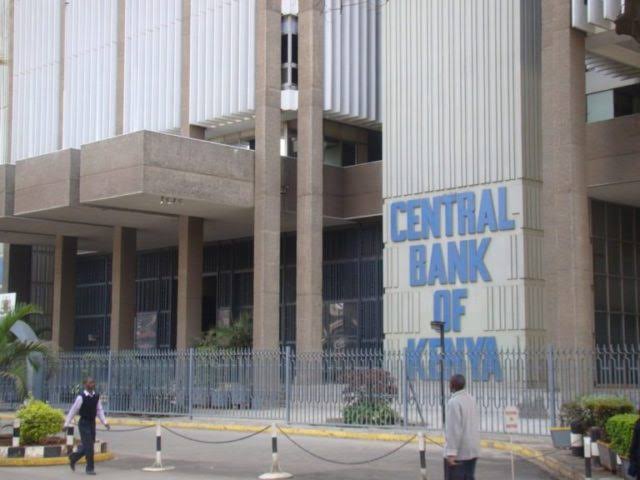Digital Money Lenders In Kenya To Be Regulated Like Commercial Banks Under Proposed New Law
Going forward, if a Bill pending before Kenya ’s national parliament is passed into law, business will not be as usual for all digital lenders in the East African country. Not only would they have to play under the same rules as commercial banks, including having to seek the country’s central bank’s approval for new products and pricing, the amount they each charge their customers as monthly interest rates on borrowed facilities would now also be regulated.
“The principal objective of this Bill is to amend the Central Bank of Kenya Act to regulate the conduct of providers of digital financial products and services,” says a notice on the Bill.
“The Central Bank of Kenya will have an obligation of ensuring that there is fair and non-discriminatory marketplace access to credit.”
Here Is What You Need To Know
- By the terms of the Central Bank of Kenya (Amendment) Bill 2020, the Central Bank of Kenya must approve every increase in digital lenders rates and other loan charges. Interests on non-performing loans must also, if the bill is passed into law, not be more than twice the defaulted credit.
- This is the first major attempt by Kenya to regulate all digital financial services startups and companies operating in the country.
- The latest move is coming on the heels of the recent ban imposed by the bank (CBK) on digital and credit-only lenders which blocked them from submitting credit information on their borrowers to the country ’s Credit Reference Bureaus (CRBs).
- In a statement, late April, 2020, CBK explained that the ban is in response to numerous public complaints about misuse of the Credit Information Sharing System (CIS) by the above-mentioned lenders and particularly poor response to customer response.
- In March this year, Kenyan Parliament also considered a petition to launch investigations into the operations of digital money lending institutions over claims of exploitation of borrowers.
The Implications Of The Proposed Law On Digital Financial Services Startups In Kenya
Implied Lifting Of The Ban On Credit Lending Startups
Once the new law is passed into law, its first implication would be to terminate the ban on credit lending startups in Kenya as regards submitting credit information on their borrowers to Credit Reference Bureaus (CRBs). Thus, with a renewed power to report customers for blacklisting to the country’s central credit information sharing center, it is only safe to say that the risks associated with their business model have become, once again, more manageable.
Licensing of Digital Financial Services Companies/Startups
Another direct implication of the proposed new law on digital financial services startups in Kenya is that the Central Bank of Kenya will now possess recognized power under the law to issue operational licenses to startups desiring to provide services related to a digital financial product, financial product advice, market, administrative or management services or credit under a regulated credit contract in Kenya.
What this means is that startups that offer digital banking services will now also have to maintain a minimum authorized capital of five billion shillings ($46.4 million), which may be increased by such amount as shall be determined by CBK, unless the contrary is stated by the CBK.
In other words, all the rules regulating commercial banks and other financial institutions will now have to apply to startups offering digital financial services if the bill becomes law.
The Bill is coming amid complaints that digital lenders do not provide full information to borrowers on pricing, punishment for defaults and recovery of unpaid loans.
Digital lenders have also been accused of abusing personal information collected from defaulters’ mobile phone contacts list to bombard relatives and friends with messages regarding the default and asking third parties to enforce repayment.

Read also: Kenya Bans Digital Money Lenders, Extends Loan Repayment Period For Businesses
Regulation of Interest Rates Charged Users Of Digital Lending Services
Even though digital lenders in Kenya may still be allowed to lend, the law would however, if passed into law, see that they do not charge interests on their loans excessively. This is because the CBK could now determine the maximum rate of interest they charge their customers.
The latest move to control the activities of digital lenders follows the removal of legal cap on commercial lending rates by the Central Bank of Kenya in March 2020. The cap, established far back in 2016, which set interest rates chargeable by banks at 4%, was intended to address the issue of the affordability of credit for small enterprises and working people, as they had complained for years that high interest rates had locked them out of accessing credit.
Its removal in March this year has, however, resulted in the proliferation of digital lenders, who seek to take advantage of the business opportunities it offered. For instance, Tala, Branch, which are among top players in the mobile digital lending market in the country, offer interest rates of 152.4 percent and 132 percent per year respectively.
Charles Rapulu Udoh

Charles Rapulu Udoh is a Lagos-based lawyer who has advised startups across Africa on issues such as startup funding (Venture Capital, Debt financing, private equity, angel investing etc), taxation, strategies, etc. He also has special focus on the protection of business or brands’ intellectual property rights ( such as trademark, patent or design) across Africa and other foreign jurisdictions.
He is well versed on issues of ESG (sustainability), media and entertainment law, corporate finance and governance.
He is also an award-winning writer.

